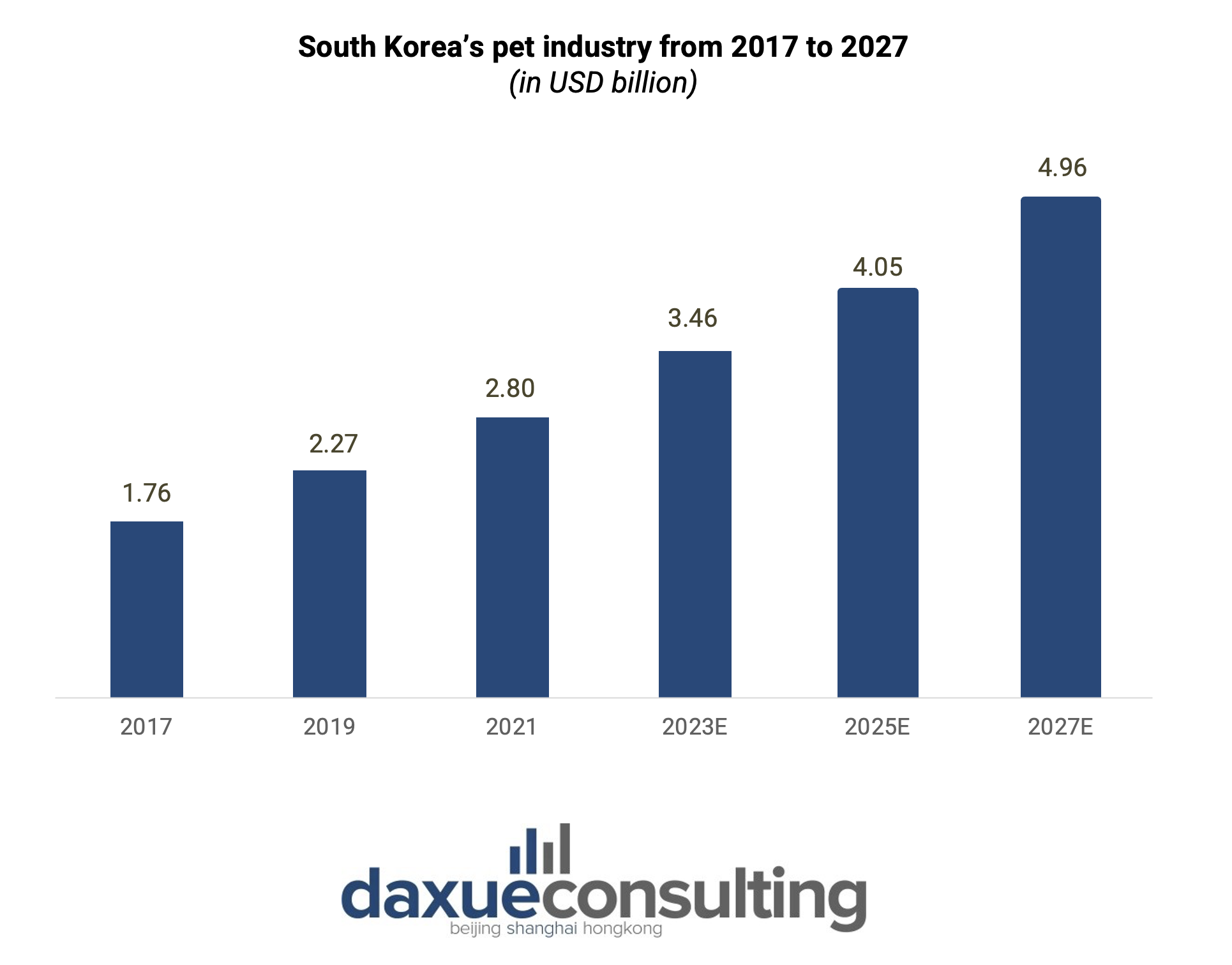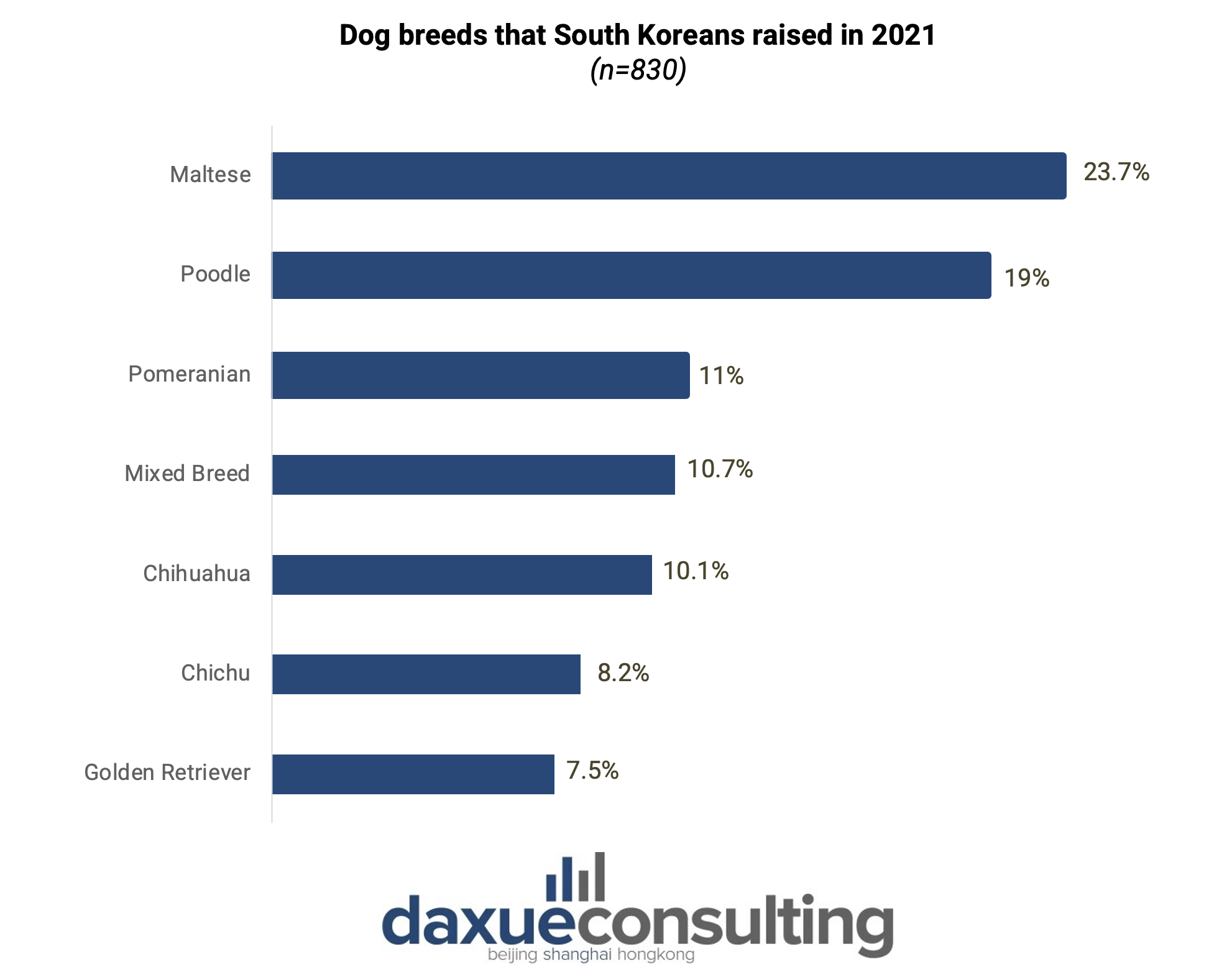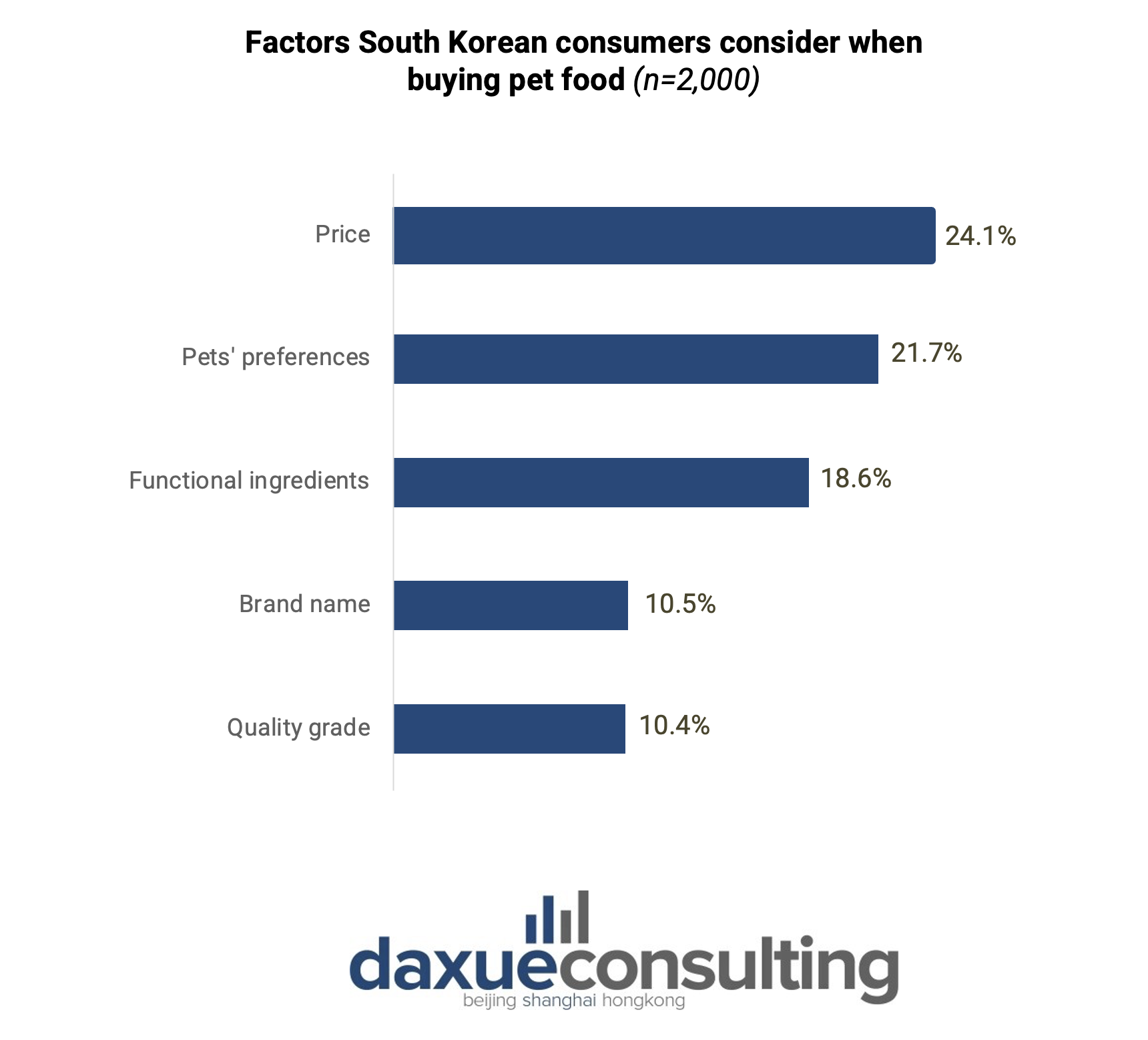With approximately 25.4% of South Korean households raising pets in 2022, the pet industry reached USD 2.8 billion in 2021 and is expected to further grow. The government has also announced to invest in different pet related sectors. It aims to expand South Korea’s pet industry to USD 11.5 billion by 2027. In addition, a growing number of pet owners are considering their pets as family members and are willing to offer the best care for them. As this perspective gains popularity, domestic pet related industries are expected to further evolve, offering a broader range and higher quality products that cater to diverse consumer needs.

Increasing single household pet owners
While Koreans raise pets because they like them, they also have them because they want a family or friend. In a survey by KB Financial Group, among 10,000 respondents, about 33% of them raise pets because they like them. Following behind, 19% desire to have a family or children (19%), and 15% want to have an additional friend or family.
South Koreans are not getting married or having children, as reflected in the declining marriage and fertility rates. In 2022, single households accounted for 34.5% of total households, and the number has been increasing annually since 2000.
Read our Korea’s consumer trends report

Instead, many are raising pets. This has led to the emergence of the term “petfam (펫팸족)”. This describes individuals who consider their pets as family, not just pets. They are more willing to spend more on them too. In response, pet companies are providing pet services like pet omakase or luxury pet products that were largely limited to people.
Followed by increasing single household pet owners, different industries are entering the pet sector. South Korean convenience store brand GS25 is providing pet sitting and training services. They allow single household pet owners to easily request pet sitters to take care of their pets when they are not around. Hyundai Department Store also opened their own pet shopping store “We, pet (위펫)”, providing pet fashion and beauty products.
Smaller pets are preferred in South Korea
Smaller pets are more suitable in Korea due to the type of residential homes South Koreans live in. Unlike people living in the United States, more than 50% of South Koreans live in apartments. Only about 30% of the population lives in detached houses, and the number continues to decrease. Raising big pets in apartments can be difficult. This is largely because due to noise problems.
According to the report done by South Korean financial company KB Financial Group, Maltese and Poodles are the most raised dogs in South Korea. Despite slight variations over the years, the top ten lists predominantly comprise smaller breeds, with only one large dog breed making the list. As more than half of the population is living in apartments, pets are not primarily considered for guarding purposes, reducing the necessity or preference for larger pets.

Pet tech: the future of pet industry
“Pet tech(펫 테크)” is a term describing pet technology products and services that help owners to raise pets. As modern pet owners are mostly busy and have less time to take care of their pets, pet tech products become essential for busy working-class owners who can’t stay with their pets all the time.
Following the increasing growth of the global pet tech industry, domestic IT companies are venturing into the pet tech industry by leveraging technologies such as AI and big data. The pet tech products produced by domestic companies aim to assist owners who struggle to independently care for their pets, providing advanced technologies to enhance the health and overall wellbeing of pets. For instance, South Korean pet health-care company Alphado provides AI health care monitoring service Alphado pet plus. The service allows pet owners to check their pets’ health condition by taking picture of the pet’s body parts or through self-urinalysis.
The surge in demand for higher nutritional pet food
Followed by growing interest in pets’ health care and overall well-being, pet owners in South Korea are looking for healthier pet food. While many Koreans consider the brand name when purchasing products for themselves, they don’t necessarily prioritize it for pet food. Instead, they consider the price, the preference of their pets, and the inclusion of functional ingredients.

Additionally, according to a report by Korea Agro-Fisheries & Food Trade Corporation, multi-nutrition pet foods are the primary type of pet food that domestic consumers prefer. This is followed by weight loss pet food and immune support pet food. Overall, domestic pet owners seek highly nutritious and health-focused options when purchasing food for their pets. With such trend, in addition to pet brands, domestic food and beverage companies are further developing high-nutrition products.
Key insights of South Korea’s pet industry
- Followed by increasing pet owners, the government has announced to invest in different sectors of South Korea’s pet industry. It aims to reach USD 5 billion by 2027.
- With more people not getting married or having children, they are raising pets instead. Smaller pets are more popular than bigger ones. One of the main reasons is that most people live in apartments.
- People living alone are caring more about the overall well-being of their pets. In response, Various IT companies are developing products that can satisfy these concerns. In addition to technology, pet owners demand higher quality, nutritious food.





